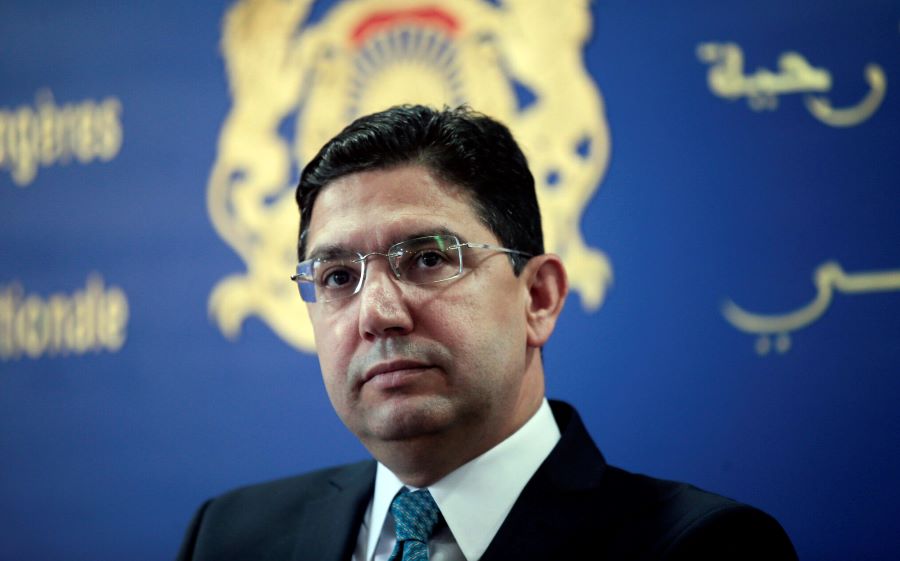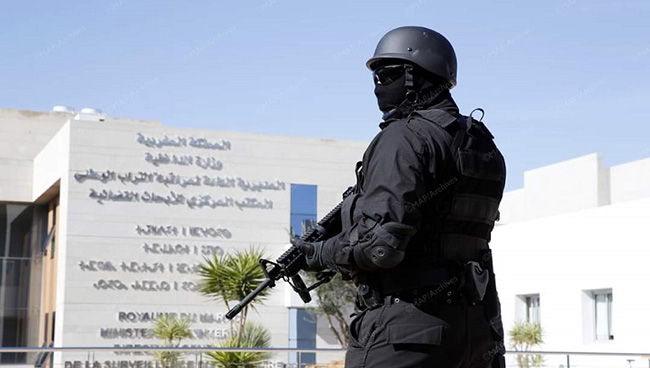The African policy of King Mohammed VI is a policy of belonging and initiative, resolutely Afro-optimistic, human-centered and geared towards African responses to Africa's challenges, said, on Friday in Rabat, Minister of Foreign Affairs, African Cooperation and Moroccan Expatriates, Nasser Bourita.
“If His Majesty King Mohammed VI has placed Africa at the heart of Morocco's international priorities, it is also because the Sovereign believes deeply in Africa,” stressed Bourita, who was speaking on the occasion of Africa Day, held at the headquarters of the Ministry of Foreign Affairs, African Cooperation and Moroccan Expatriates.
Highlighting “the markers of His Majesty the King's African Vision”, he pointed out that “where some speak of despair in Africa, the Sovereign sees potential. Where some opt for easy solutions, His Majesty the King advocates the use of funds to develop sustainable solutions. And where many see problems, His Majesty the King sees opportunities”.
The Minister said that Morocco's Afro-optimism is also an Afro-pragmatism, based on the objective observation that the Continent is equipped to emerge as one of the major clusters of global growth, stressing that Africa will succeed.
Bourita recalled the speech delivered by His Majesty the King at the 27th Summit of the African Union, in which the Sovereign emphasized that “A continent long neglected, Africa can no longer be ignored. The era during which our Continent was treated as a mere object in international relations is over. Africa is progressing and is asserting itself in the international arena. Today, it is an active, respected partner in the debate on global governance.”
On the other hand, the Royal Vision for Morocco's African policy is based on confidence in South-South cooperation, the Minister added, underlining the need for African responses to African challenges. “Indeed, for His Majesty the King, Africa's emergence depends on its ability to take its destiny into its own hands and respond to its challenges with its own adapted, innovative and creative solutions, designed by Africans for Africans”, he underlined.
In this context, the Minister stressed that this Royal Vision gives pride of place to the principle of South-South co-development, based on solidarity and sustainability, and to inter-African cooperation, recalling that it is with Africa that Morocco has the densest conventional network.
This network, he added, is based on over 1,500 cooperation instruments linking the Kingdom to more than 80% of African countries, covering fields as varied as higher education, executive training, health, infrastructure, renewable energies, sanitation and drinking water.
It is also in sister African countries, in the four corners of the Continent, that the major socio-economic projects launched by His Majesty the King are being deployed, essentially focused on human development, recalled Bourita.
In addition, he noted that the Royal vision is based on a policy of belonging, not neighborliness, because Africa, according to him, is not just a neighborhood for Morocco, but a land of identity, geography, culture and history.
Emphasizing the centrality of the human factor in the Sovereign's African policy, the Minister stressed that Africa's emergence will be driven by Africans, and that human capital is the continent's greatest asset. The markers of His Majesty the King's African Vision are perfectly applicable to the question of education in Africa, said Bourita on the occasion of this day held under the banner ‘Education, a real lever for development and transformation in Africa’.
Morocco's commitment to education is not only national, but also continental, he noted, pointing out that the Kingdom has set up exchange programs promoting the sharing of knowledge and best practices in this field. Morocco has invested in strengthening educational infrastructures in Africa and has equipped itself to become, today, a destination of choice for African students, said Bourita, affirming that this is both a source of pride and humility.
“During the 2023-2024 academic year, we had the pleasure of welcoming 1,592 African students from 43 countries to our establishments, including a significant number of scholarship holders from the Moroccan state,” he said.
African students are present in all regions of Morocco, including Laayoune and Dakhla, said the Minister, noting that in total, more than 3,000 students from 36 African countries are currently accommodated in university halls of residence and boarding schools in Morocco.
In the diplomatic sphere, some 240 African diplomats have benefited since 2014 from the international cycle in diplomacy provided by the Moroccan Academy of Diplomatic Studies, and 83 African diplomats have benefited from the initial training cycle.
The meeting, attended by Zambia's Minister of Justice and Acting Minister of Foreign Affairs and International Cooperation, Mulambo Haimbe, currently on a working visit to Morocco, as well as several ambassadors accredited to Rabat and personalities from various backgrounds, was marked by the screening of a documentary entitled “The Kingdom's commitment under the leadership of HM King Mohammed VI to the training and development of skills and employability of African youth”.






